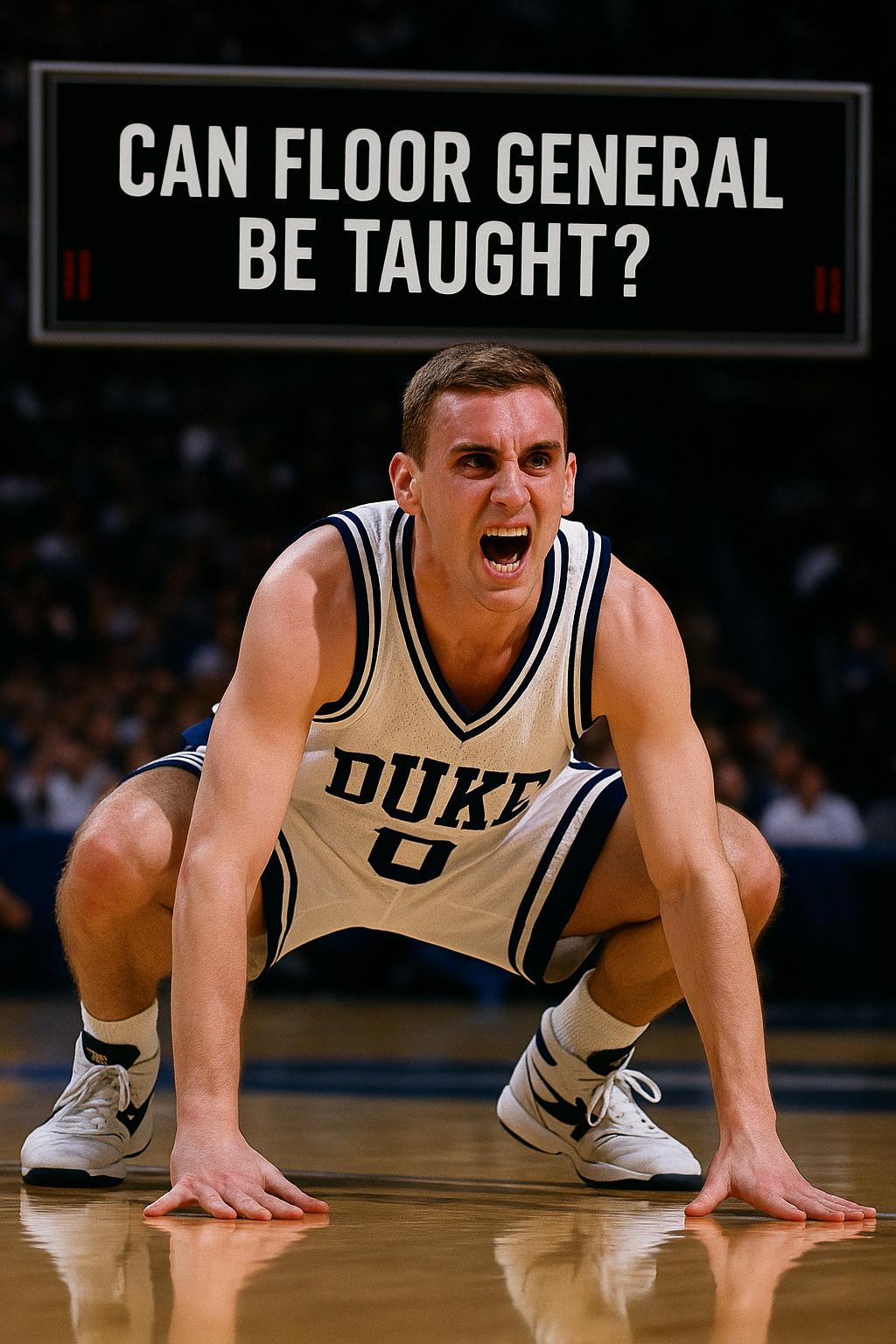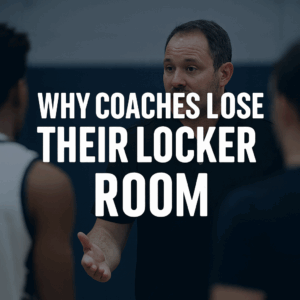“I am a member of the team, and I rely on the team, I defer to it and sacrifice for it, because the team, not the individual, is the ultimate champion.” ― Mia Hamm
Earlier today I had NBA Radio on in the car, and just as I was pulling into a meeting, the hosts posed the question that became the title of this blog: Can someone be taught to be a “floor general”? I didn’t have time to hear their answer, but it stuck with me. It’s been too long since I’ve written about the sport I coached the longest and at the highest level, so this seemed like the perfect place to jump back in.
And before you tune out thinking this is “all basketball,” let me be clear: when I use the term floor general, I’m not just talking about point guards. Volleyball setters, softball or baseball catchers, football quarterbacks—every sport has its version of a floor general. If you coach, you know exactly who I’m talking about.
I played point guard in both high school and college. I wasn’t a great player by any stretch—more of a role player, honestly—but being a floor general was the one thing I did well. I couldn’t shoot much, my arms were short, and my hands were small, so my offensive game was limited. I had exactly one clean dunk in my life, and that came in a summer league game at our local community college (thankfully nobody had a tape measure to check the rim height!). But what I lacked in ability, I tried to make up for in leadership.
Defining a Floor General
To me, a floor general is the player who functions as the coach on the floor, field, or ice. They’re the communicator. The decision-maker. The one who reminds everyone who we are and how we do things. They motivate, challenge, and support their teammates—sometimes with a kick in the backside, sometimes with a hug. Every coach hopes to have one each season.
But here’s the truth: after more than 25 years of coaching and recruiting, I can tell you how rare they are. It’s easier to find an athlete who can dominate physically than it is to find a player who can lead as a floor general.
The Four Qualities of a Floor General
Before answering whether this can be taught—or if it’s something you’re simply born with—let’s break down the traits of a true floor general:
- Great Communicator – They bridge the gap between players and coaches, speaking up even when what they say won’t be popular.
- Responsible and Accountable – When the team succeeds, it’s “we.” When things fall apart, it’s “I need to do better.” They deflect credit but accept blame.
- Relentless Work Ethic – They may not be the most talented, but they lead by outworking everyone. They earn the right to speak because they’ve put in the work.
- Calm in Chaos – No matter the situation—bad calls, tough losses, or crunch-time moments—they stay composed. They act like they’ve been there before, treating teammates and opponents with respect and humility.
Now, think about your own roster. How many players check all four boxes without hesitation? My guess is one, maybe two, at most.
Can It Be Taught?
I believe it can—but not in the way people usually mean when they talk about “teaching.” It’s not about diagrams on a whiteboard or a lecture in practice. Becoming a floor general is more like becoming a surgeon. Four years of college isn’t enough. Three years of med school isn’t enough. Even a residency only gets you started. Only years of experience, repetition, and decision-making under pressure can prepare someone to walk into an operating room—and lead it.
The same is true here. No single class or season makes someone a floor general. It takes living it, breathing it, and practicing it daily. It takes successes and failures, in real games, with real consequences. And while the stakes aren’t life or death like in surgery, the survival of your team’s season often hinges on whether or not you have one.
Four Teaching Questions for Aspiring Floor Generals
If you want to develop floor generals, start with questions like these:
- Are you using your voice to lead or to just be heard?
- Is there no doubt that you are in the best shape of anyone on the roster?
- Are you building trust with every teammate—not just your closest friends?
- Do you love the game enough to not care if you don’t get the credit for the work you put in?
These questions may seem simple, but they form a daily self-check or evaluation rubric for any player who wants to lead.
The Sacrifice of Leadership
Yes, it’s a lot of pressure for a teenager or college athlete. That’s the point. Leadership always comes with sacrifice, and very few young athletes are willing to make that sacrifice.
So, can a floor general be taught? Yes. But only if the player is willing to accept the weight that comes with it.
Closing
If this resonated with you, I’d love for you to explore more resources at CoachMattRogers.com or send me a note with your thoughts. On the website, you’ll find my book Significant Recruiting: The Playbook for Prospective College Athletes and the Recruit’s Journal series (basketball, baseball, softball, volleyball, and soccer). They’re designed to help athletes not only take control of their recruiting journey but also grow into the leaders—the floor generals—that every team needs.






